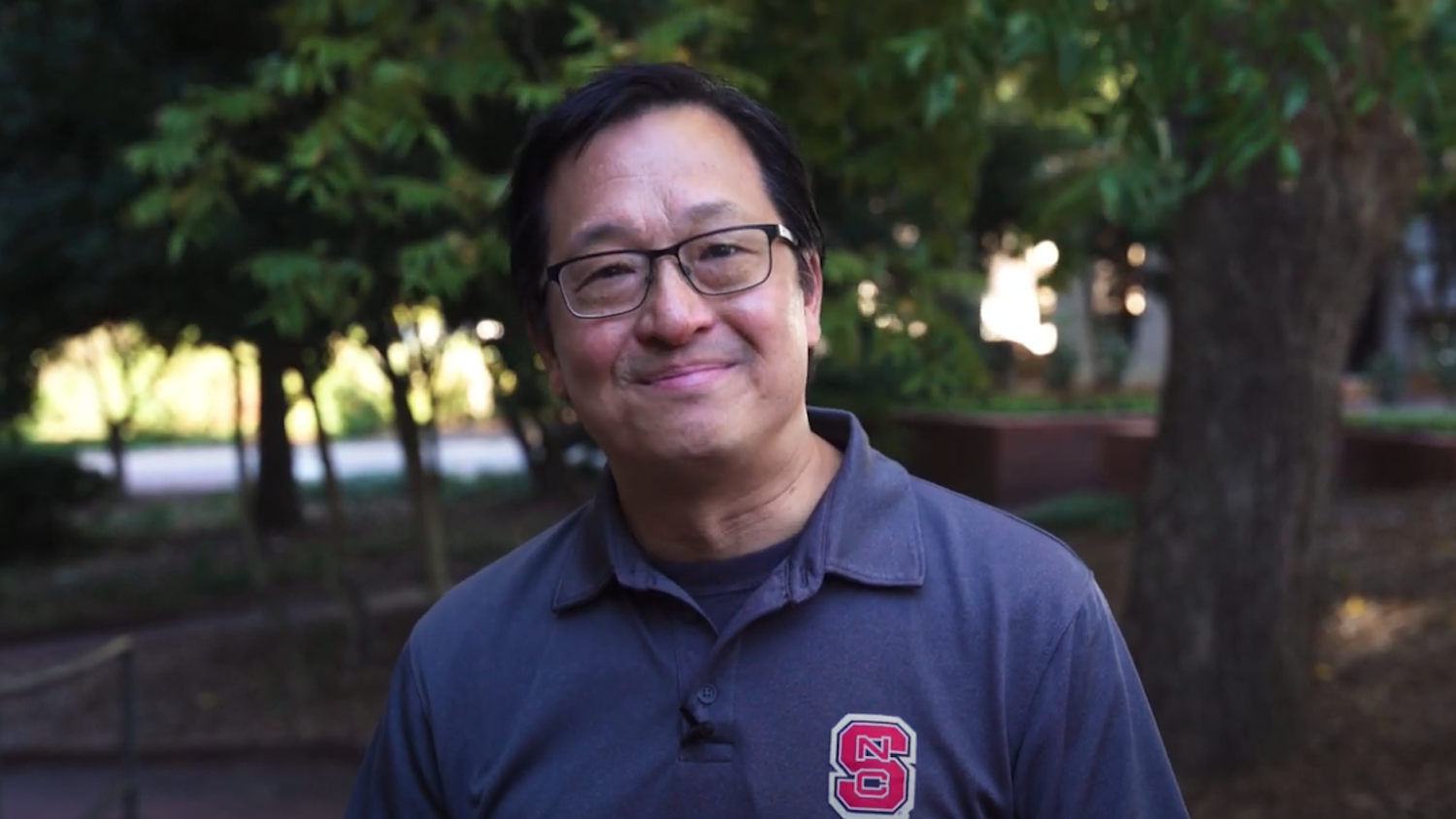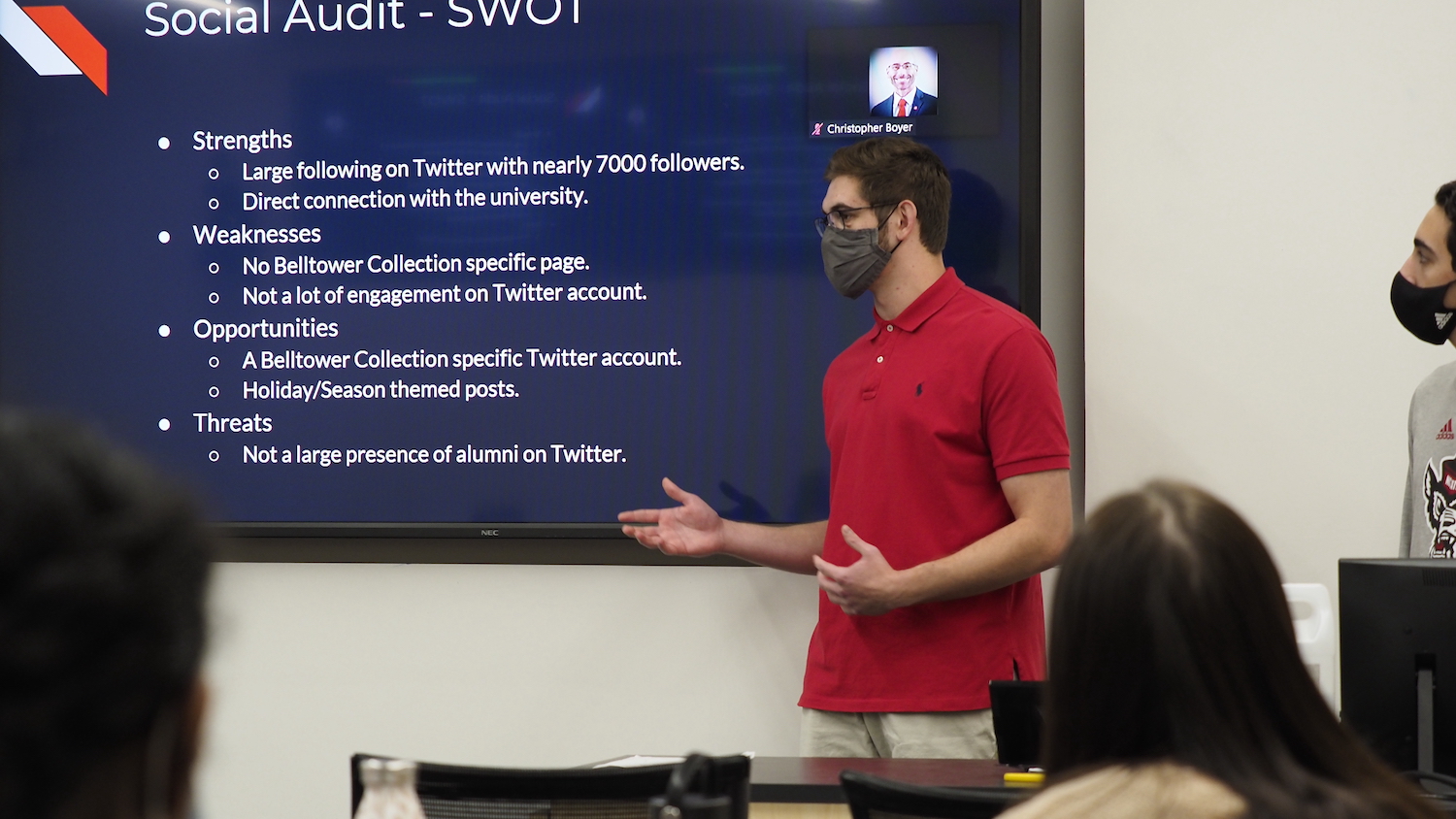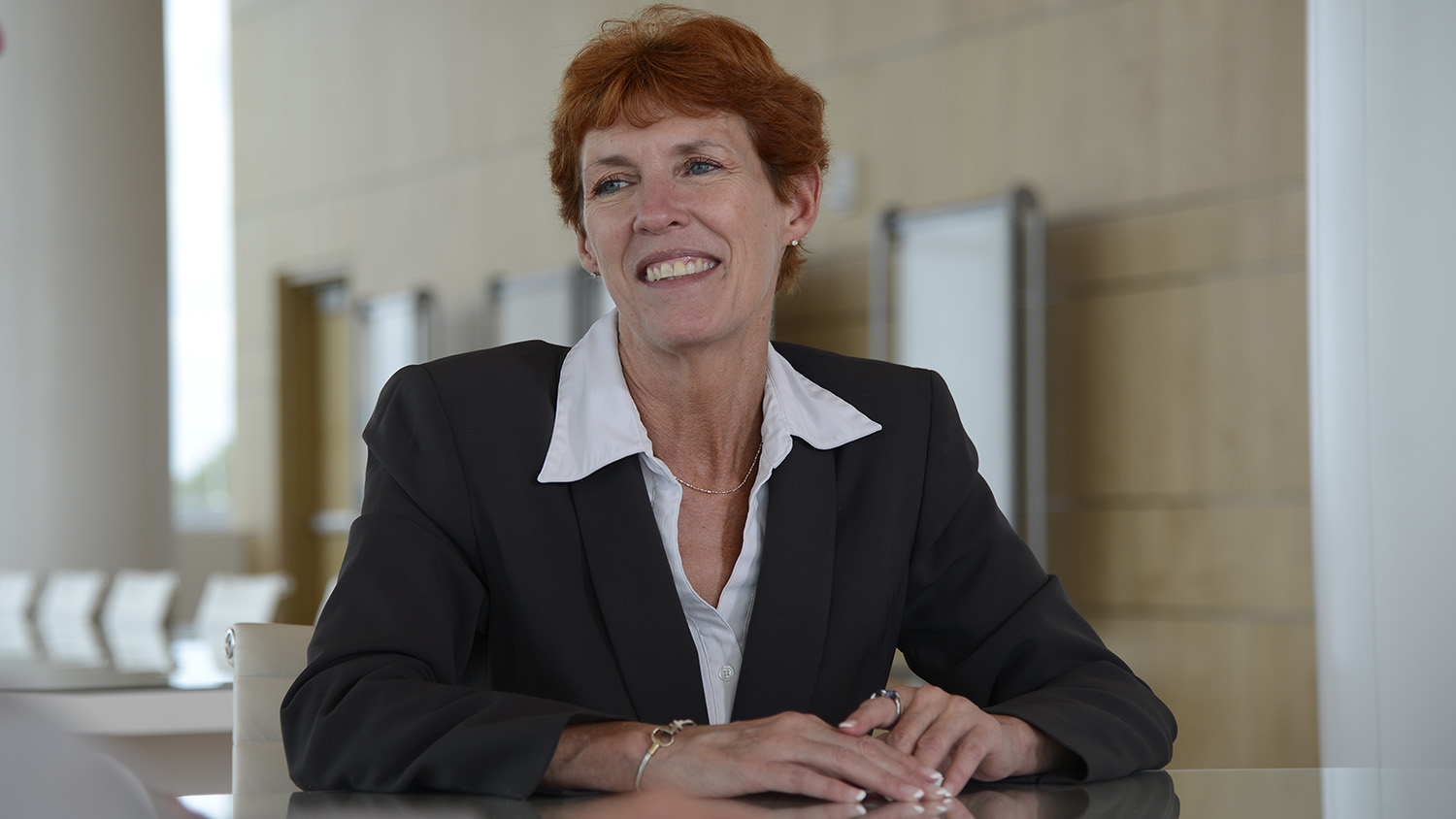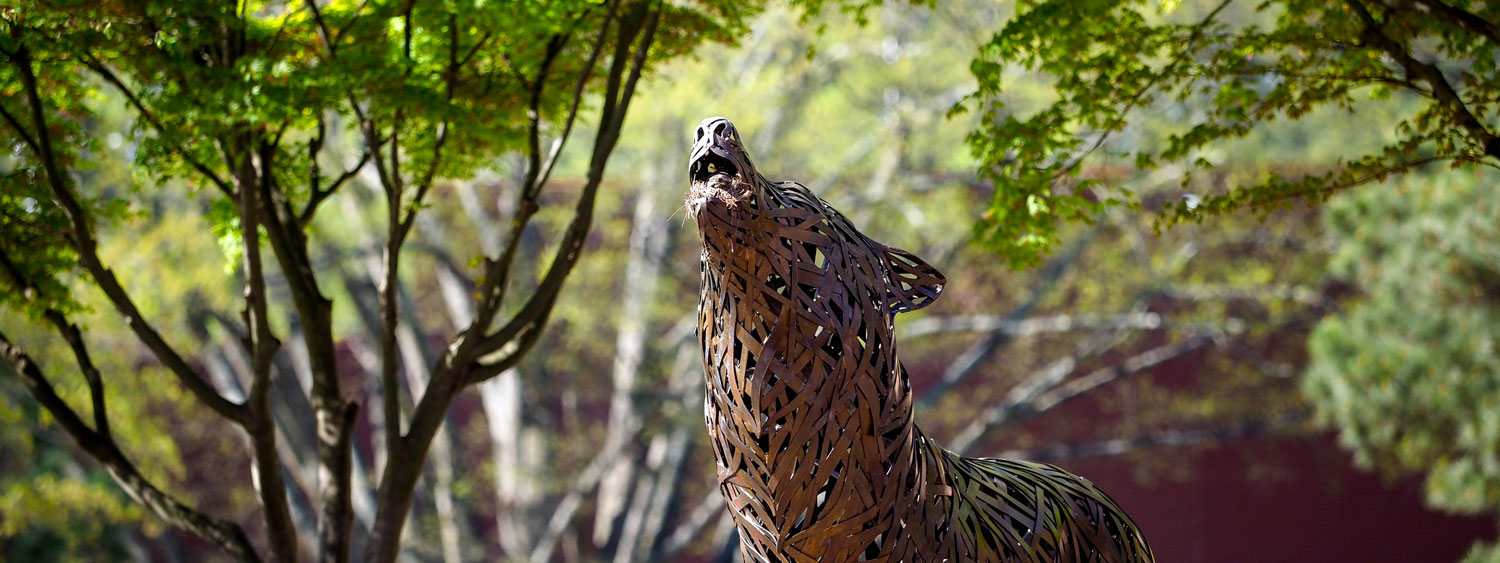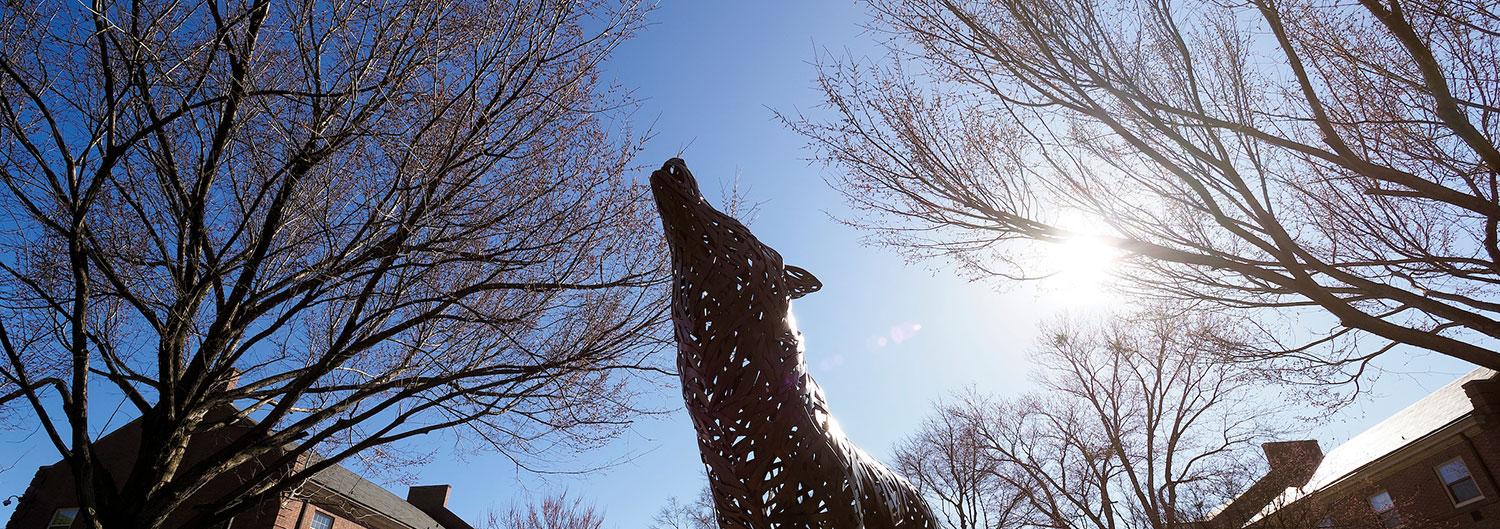Poole Wellness Initiatives: From Therapy Dogs to Office Yoga
To respond to a dramatic increase in wellness and mental health issues across students, faculty and staff, accelerated during the pandemic, Poole increased its focus on wellness initiatives.
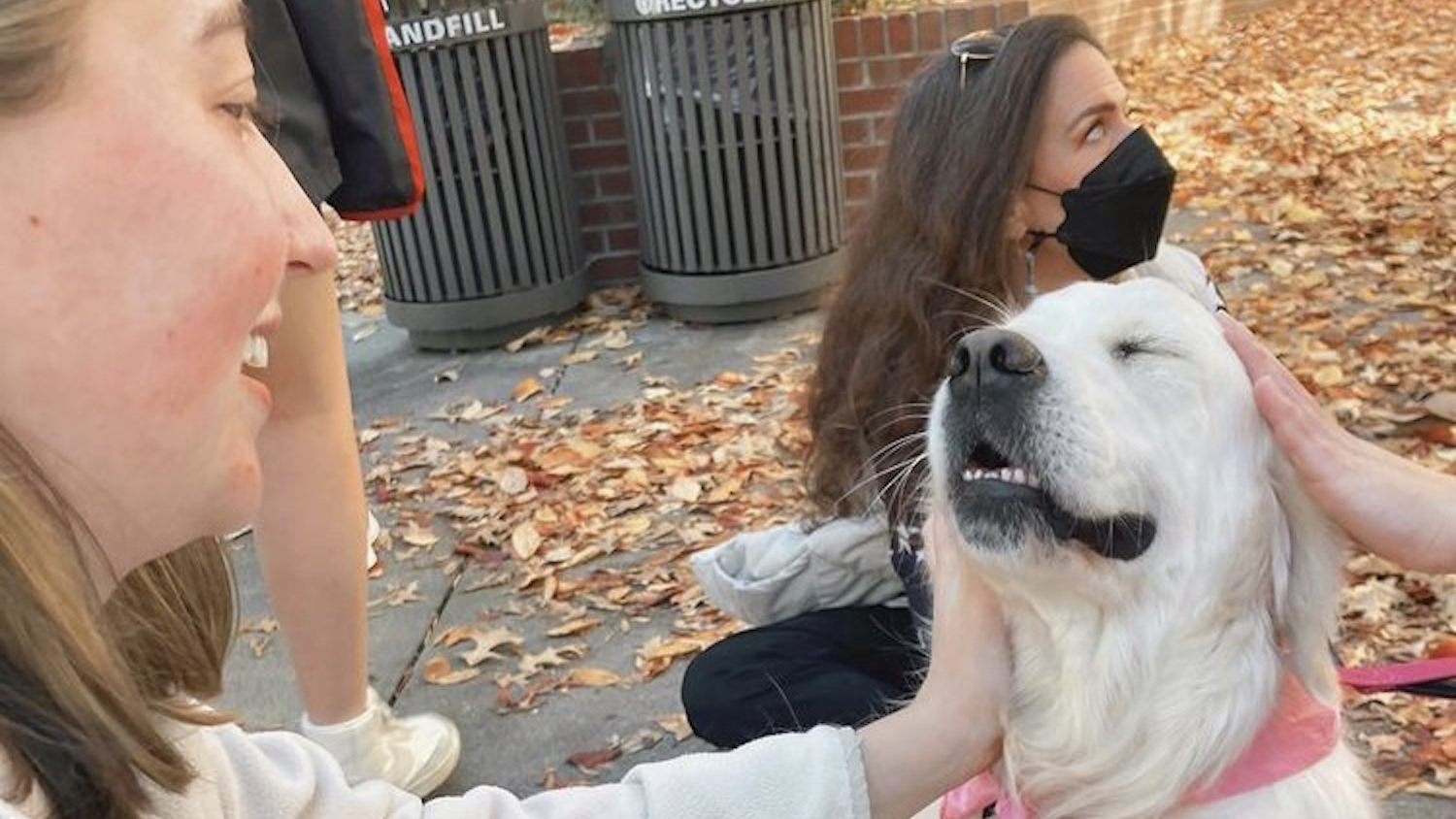
By Lea Hart
Passersby may have noticed a number of canine visitors outside of the Poole College of Management this past fall.
Those pups, certified therapy dogs, were part of a larger initiative to support student, faculty and staff wellness. The event and others held in the fall were met with a positive response, and future plans for additional wellness initiatives are in the works.
“Students are concerned about their grades and their performance in classes,” Tedd Szeto, assistant dean for undergraduate programs, said as the fall semester came to a close. “If you’ve been online for a year-and-a-half, it feels very different to be back in person.
“The expectations may seem perhaps more challenging, and that’s paired with everything else – roommate situations and having to work as well – all of these other pressures that are piled on them.”
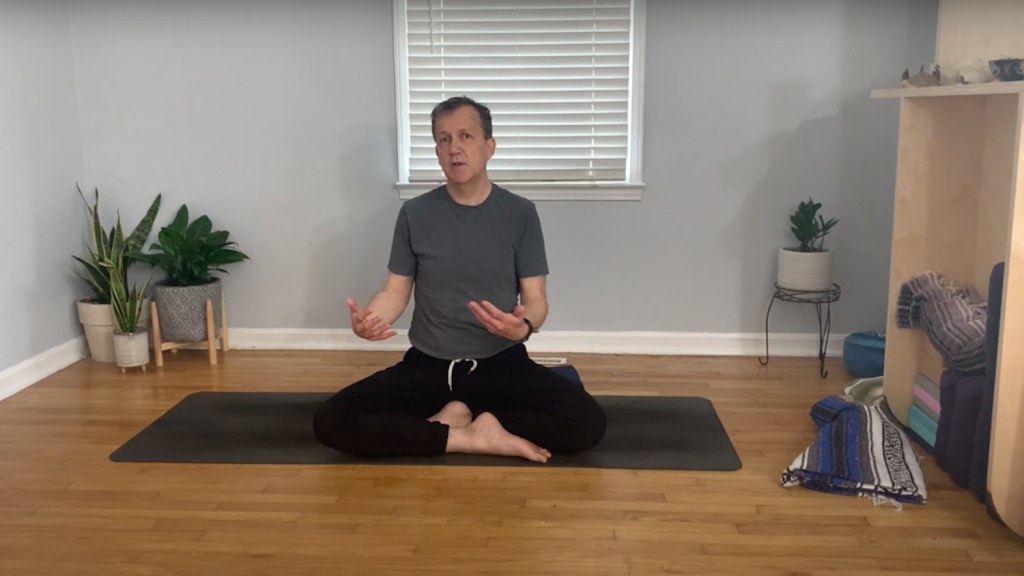
In addition to the therapy dog visit, a coloring station was set up for students in a quiet space with soothing music playing. At the faculty and staff level, Richard Warr, associate dean for faculty and research, led online yoga classes throughout the fall, and Rob Sandruck, director of global programs, taught an online cooking course via Zoom, among other activities.
“I estimate at least 350 students attended the therapy dog event, and I don’t think I ever saw a dog without a student for longer than a minute, if that long,” said Bev Porter, director of the Career Center for Jenkins MBA. “There was nothing but smiles and happy students leaving the event so I would have to say the event had a positive mental effect on the attendees.”
An increase in concern for student, faculty and staff wellness leads to new initiatives
The events were in response not only to noted increased stress among students, faculty and staff at Poole, but also an uptick in mental health concerns at campuses across the country, Szeto said. Just down the road at the University of North Carolina at Chapel Hill, there were two student suicides in October of 2021.
“We didn’t want to ignore the fact that this is a stressful time for students, paired with coming out of Covid, and readjusting to academics in so many ways,” Szeto said. “We didn’t want to sweep it under the rug or say, ‘this isn’t going to happen here.’”
The push to increase the focus on mental wellness began at the Dean’s level and was led by Vikas Anand, associate dean for academic programs, and his staff advisory team. That group, called the Pilot Team, which includes Szeto, Nichole Miller, assistant dean of Jenkins MBA programs, Porter, Jay Arrington, associate director of admissions, Sandruck, and Andrea Young, associate director of marketing for Jenkins Graduate Programs, met to discuss ideas and brainstorm about ways to support wellness among students, faculty and staff.
In addition to on-campus and online events, a video was created to normalize the idea of addressing mental health and that video was shown in classes at Poole.
Miller, who works with professionals who are students in the professional MBA program, noted how much that group has been juggling during the pandemic between work, family and studies.
“People are on edge – they’ve been juggling things for so long and there’s been no break or respite,” she said. “There’s almost a constant need to pivot, change and adjust; it just takes a toll.”
It’s so important for them to know we’re here for them, and if they feel like they need additional support, we are here to provide whatever support and resources we can.
“It’s so important for them to know we’re here for them, and if they feel like they need additional support, we are here to provide whatever support and resources we can.”
Events like those held in the fall give everyone permission to take a break, she said.
“There’s always going to be some homework to be done or project to be worked on,” she said. “It’s ok to just hit pause and take a break – you have to take care of yourself or you’re not going to be as beneficial to everyone else.”
Annapaola Boreatti, a senior pursuing a bachelor of science in business administration, felt the stress that many students did, pursuing her degree and working at the same time. She recalls feeling overwhelmed with commitments, and upon hearing about the therapy dog event, the self-proclaimed animal lover immediately saw an opportunity to unwind. It was also an opportunity to connect with fellow students, she said.
“I also thought it was nice that I would cross paths with some other Poole College students I might have seen in my classes or Poole faculty that I don’t get to see as often outside of the classroom,” Boreatti said. “Meeting the therapy dogs was as beneficial as a short day trip without the costs involved.
“I felt like I could let go of the fast-paced, almost adrenaline-driven environment I was in and take a few minutes to be outside and have fun, surrounded by nice people and pets.”
I also thought it was nice that I would cross paths with some other Poole College students I might have seen in my classes or Poole faculty that I don’t get to see as often outside of the classroom. Meeting the therapy dogs was as beneficial as a short day trip without the costs involved.
At the faculty and staff level, Poole College’s two Wellness Champions, Heidi Echols, an instructional designer, and Alissa Dodds, an academic advisor, helped spearhead events. University Wellness Champions receive training from the university to support wellness initiatives for faculty and staff within their college or division.
The pandemic brought on a sense of burnout, while at the same time, isolating people from connecting with others in meaningful ways, Echols said.
“As we can get back to what I would say are really meaningful ways to connect to others and ourselves, it’s going to be helpful,” she said.
Stephanie Reiley recently joined Poole College as an academic advisor. She noted the various wellness events provided that needed opportunity to connect and get to know the Poole College community. Reiley said she met many students she had not yet met while attending the therapy dog event.
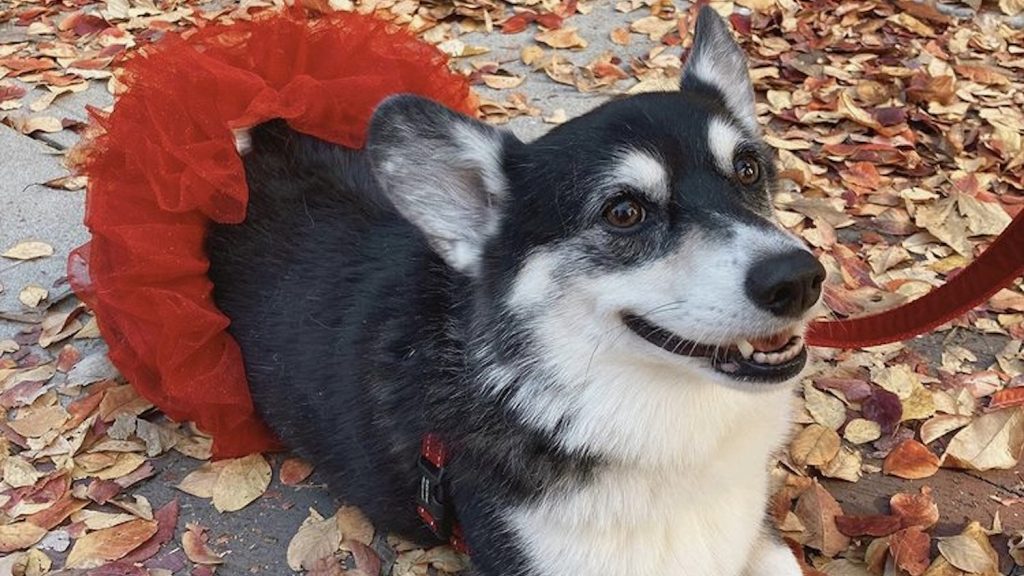
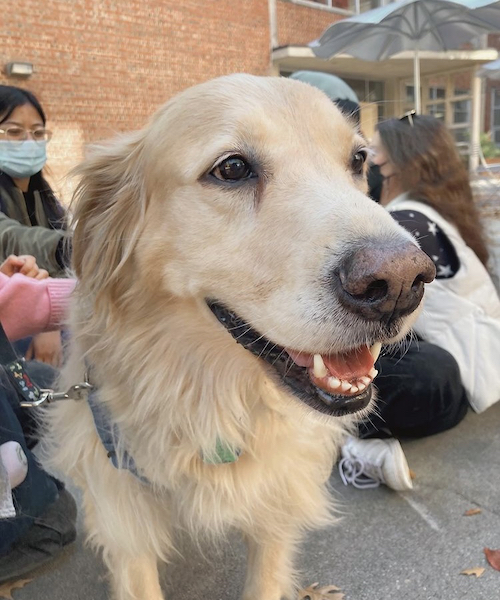
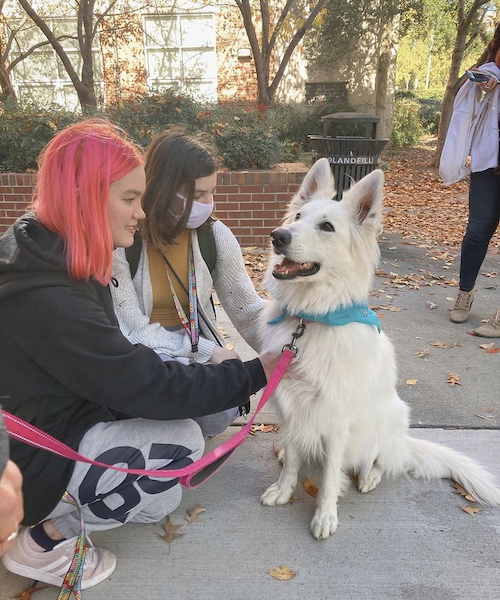
“I really enjoyed taking a break in the day to spend some time with students enjoying themselves with animals,” she said. “As a brand new staff member to Poole, it was very valuable for me to be able to meet more students with the help of some furry friends.”
Each month, the Office of Business Services newsletter has shared wellness ideas with faculty and staff, while events such as the yoga and cooking classes provided additional ways for faculty and staff to connect and to practice self-care, Echols said. Warr’s yoga class, for example, had regular attendees but also brought in varying new attendees nearly every week. It’s designed so that faculty and staff can take part from their office and don’t even need to change clothes, she said.
The importance of addressing total wellness
Jennifer McLamb, assistant director for academic advising, represents Poole on the university-wide NC State CARES team. The multidisciplinary team includes members from academic departments and colleges, the university’s Counseling Center, prevention services, campus police, and others. The group meets each week to discuss, in a confidential manner, ways to meet the needs of high-risk students.
“It’s a concerted effort to bring a small group of people to the table to help support students who need additional layers of support to be successful,” McLamb said.
She noted the importance of addressing mental wellness on campus. Equally important is meeting students, faculty and staff where they are in response to mental health since it often does have a stigma attached to it, she said.
“Some families are very understanding of mental wellness as part of the wellness wheel, while others think you should be fine and able to figure it out on your own,” McLamb said. “There’s not a right or a wrong way in which students show up at our doors; we have to start with where they are.”
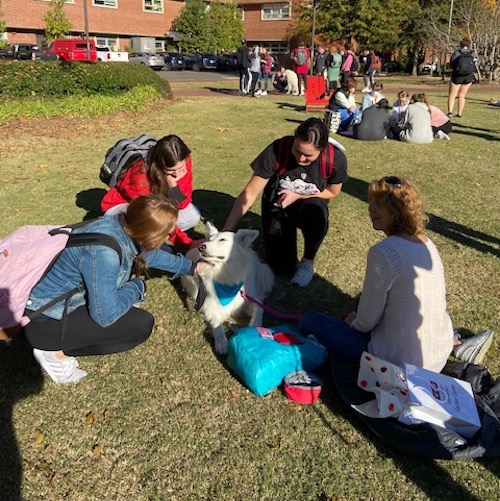
McLamb said there has been a dramatic increase in student wellness issues and student mental health issues during the pandemic. That can lead to academic performance issues, which McLamb noted doesn’t necessarily mean a student is failing. If a straight-A student begins receiving B’s, that student will view that as a concern, she said.
For faculty, many may not have regularly taught online and were then asked to pivot without a lot of time to prepare. It also led to feelings of a lack of connection for both faculty and students, she said.
Moving into the spring semester, Szeto and Miller said the group at Poole hopes to hold more events, and to pull more people, including students, into the planning process.
McLamb noted the university has always seen students in crisis, but the pandemic has amplified the issue. The upside to that, if there is one, is that mental health is now talked about more and people are paying more attention, she said.
Our job is always to inspire, and to provide hope at the end of the day to students in crisis.
“For me, it is so important that we’re having these conversations,” she said. “Our job is always to inspire, and to provide hope at the end of the day to students in crisis.”
Below are just a few resources which support student, faculty and staff on campus:
- Faculty, staff and students can find wellness resources, including wellness coaching: wellrec.dasa.ncsu.edu/wellness-2/
- Students can receive support from faculty and staff through the CARES program: prevention.dasa.ncsu.edu/nc-state-cares/about/
- The NC State Faculty and Staff Assistant Program provides no-cost, confidential counseling services: er.hr.ncsu.edu/faculty-staff-assistance-program/
Have an idea for a future wellness event at Poole or want to get involved? Use the dean’s Virtual Suggestion Box to share your idea.
- Categories:
